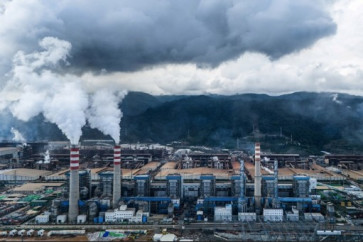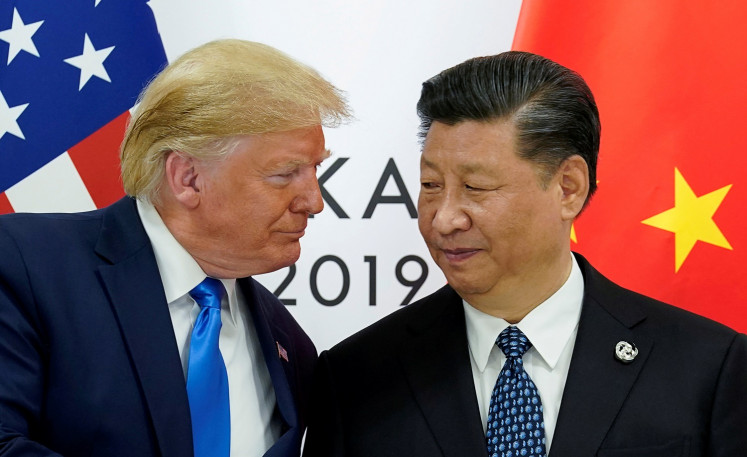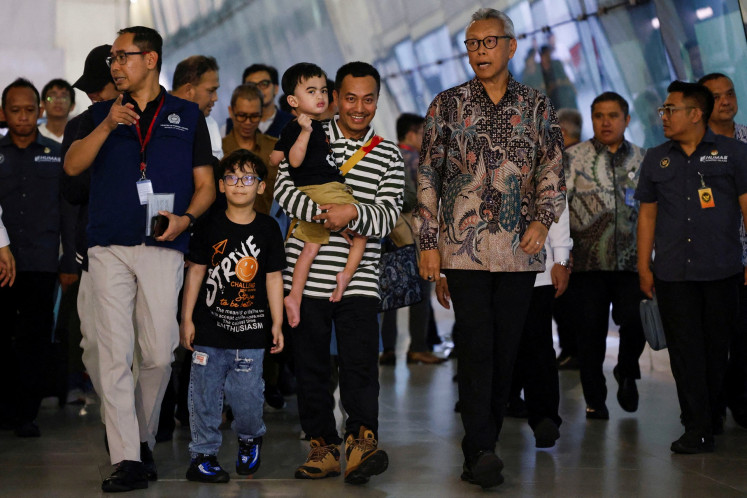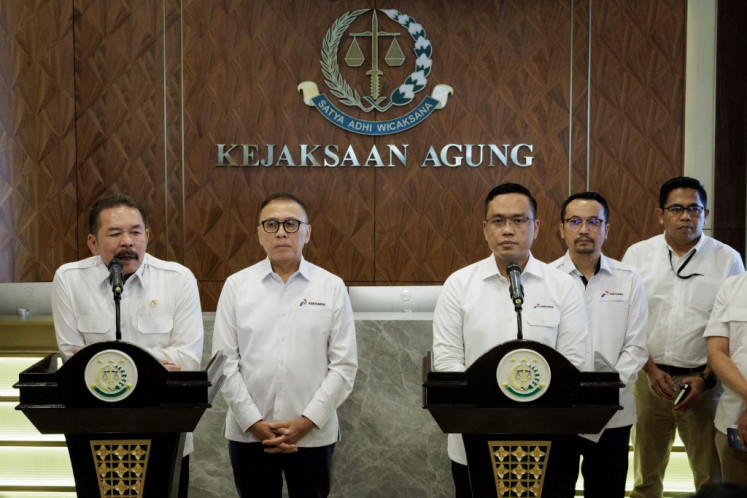Popular Reads
Top Results
Can't find what you're looking for?
View all search resultsPopular Reads
Top Results
Can't find what you're looking for?
View all search resultsNew regulation aims to attract investment to industrial zones
The government is hoping to see more investors become involved in developing industrial zones following the issuance of a new regulation
Change text size
Gift Premium Articles
to Anyone

T
he government is hoping to see more investors become involved in developing industrial zones following the issuance of a new regulation.
The Industry Ministry's director general for industrial-estate development, Imam Haryono, said on Tuesday that the new government regulation was expected to attract more investors and help expedite the development of industrial zones across the archipelago.
'We want to make [the incentives] more attractive and wide-spread,' he said.
The new regulation was officially issued on Dec. 28 and serves as a legal basis for the issuance of more detailed ministerial regulations that will set out incentives for industrial zone operators and tenants. The new regulation is hoped to turn the heads of investors, offering tax and regional incentives for both industrial zone operators and industrial tenants based on category of zone.
The tax incentives will be in the form of tax holidays and tax allowances, details of which will be stipulated in a subsequent finance minister's regulation.
The regional incentives, meanwhile, will be in the form of reductions, allowances or exemptions on regional taxes and/or levies.
Among the regional taxes and levies are land and building acquisition fees, property tax (PBB) and street lighting tax (PPJ).
Imam added that the incentives would be based on industrial-zone categories, with the least developed zones to see the greatest incentives.
The regulation divides industrial zones into four categories, namely developed industrial development estates (WPI) in Java; developing WPIs in southern Sulawesi, eastern Kalimantan, northern Sumatra (other than Batam, Bintan and Karimun) and southern Sumatra; potential WPIs in northern Sulawesi, western Kalimantan, Bali and Nusa Tenggara; and potential WPIs in Papua and West Papua. With greater incentives for less developed zones, Imam said, the government expected more investment in areas where it was most needed.
'We'll review the implementation every five years,' he added.
The new regulation also replaces certain elements in Government Regulation No. 24/2009 on industrial zones.
The new regulation removes the requirement for tenant companies in industrial zones to carry out environmental impact analysis (Amdal) if the operator had already obtained one, including for waste management.
It also allows industrial zones initiated by the government to be operated by a public service agency.
Jongkie Sugiharto, the cochairman of the Association of Indonesian Automotive Manufacturers (Gaikindo), welcomed the new regulation, saying that it would help the automotive industry pick up amid sluggish sales caused by economic slowdown.
'Any incentives would be significant,' Jongkie said.
Car sales have been squeezed by weakening consumer purchasing power, hitting around 1 million units last year, according to Jongkie.
National auto sales, he said, would probably slightly increase to around 1.1 million units this year, still below annual sales of around 1.2 million units in 2013 and 2014.









